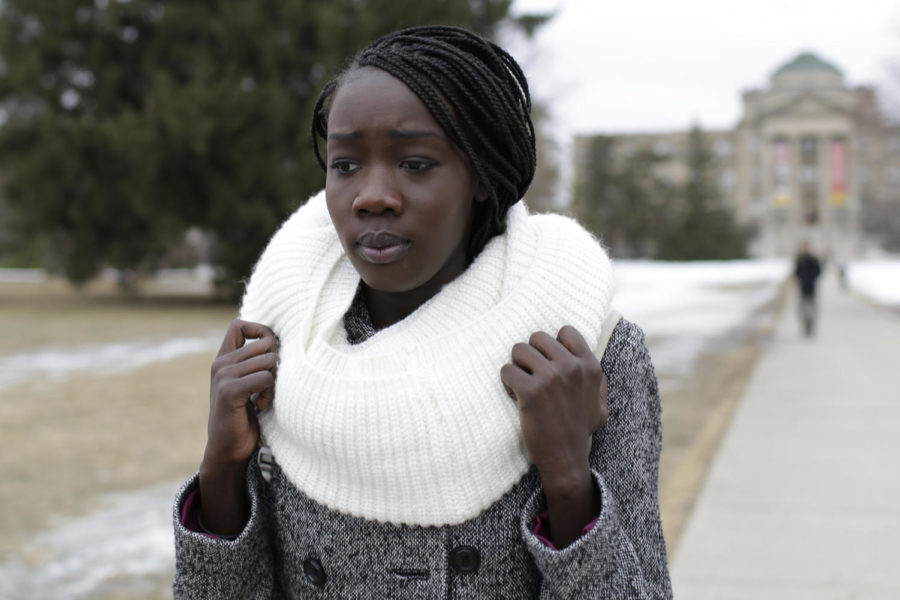South Sudanese students are torn about war in their home country
January 22, 2014
The number of bodies is unknown, hundreds of thousands of people fled from the country — the situation in South Sudan has been getting more and more severe over the past couple of weeks.
Sophomore in pre-business, Paith Philemon said living almost 8,000 miles away from home, South Sudanese students at Iowa State are especially upset at what is currently going on in their home country.
“I’m blessed to know that my family is not affected by the violence, but I have many friends who have lost loved ones,” Philemon said. “My parents still live in South Sudan; they are keeping me updated on what is going on down there.”
Philemon said she doesn’t listen to American news media as they tend to blow certain events out of proportion, which only makes them panic immediately.
Since December, the South Sudanese government has been at war with rebel forces who are trying to overpower the president and the democratic basis. South Sudan became an independent country in 2011.
Additionally, the fights between the forces are motivated by ethnical issues: The rivaling groups belong to two different tribes in South Sudan, which were the cause of various conflicts in the past.
“It kills me to see my country on the news. All I see is hypocrisy and people who have no regards to the civilians and citizens who suffer from it,” said Akol Dok, sophomore in political science.
Dok said he came to America in 2000. His relatives still live in South Sudan and keep him updated on the situation.
Both Dok and Philemon said that they study in America in order to gain enough education to go into politics in South Sudan once they get their degrees.
“We’re not here to live in America forever because we have our own country that we need to take care of,” Philemon said.
She said that Sudanese students try to gather as many resources as they can in America, so that they can go back home and help their home country.
“I really hope to get a government position in South Sudan once I’m done here,” Philemon said. “How empowering would it be to have a woman in the government speaking her mind?”
Dok said that he feels like his generation hasn’t done enough to help and make a difference, and it bothers him to be so far away from the problems.
“We just talk about it and at the end of the day, words are just words, when really we should take action ourselves,” Dok said.
On the other hand, the war in South Sudan also shows how democratic the country has become, Philemon said.
“I have so much faith in my country. I know that we will do very well over the next few years. We just have to fix our government and get rid of the people who try to turn it into a dictatorship,” Philemon said.
Nhial Yien, junior in pre-business, has a different opinion on the whole subject. He said his family moved to America when he was four, which gave him a neutral perspective on the conflict.
“Personally, I think it’s senseless. This war is all about a bunch of political figures who are just after power and will do anything to obtain that power, no matter the cost. I blame both sides for that, not just the rebels,” Yien said.
As the conflict in South Sudan is also a tribal war, a lot of people are biased and tend to ignore the actual facts, overwhelmed by their emotions, Yien said.
“Being in America kind of opened my eyes to certain things other people tend to ignore. Solving the problems starts with tribalism, we have to eliminate that and come together as a nation,” Yien said.
Yien said that most Americans are unaware about the issues in South Sudan. “They care more about current trends and the latest celebrity news.”
Dok said even if you aren’t affected by the war in South Sudan, you should still show interest and compassion in what happens in the world around you.
“We’re all human beings, so we should all be concerned about our fellow human beings,” Dok said.
Philemon said that the only thing she prays for is peace. “I hope that one day we’ll be looked at as a great and growing country, not a war-torn country.”







